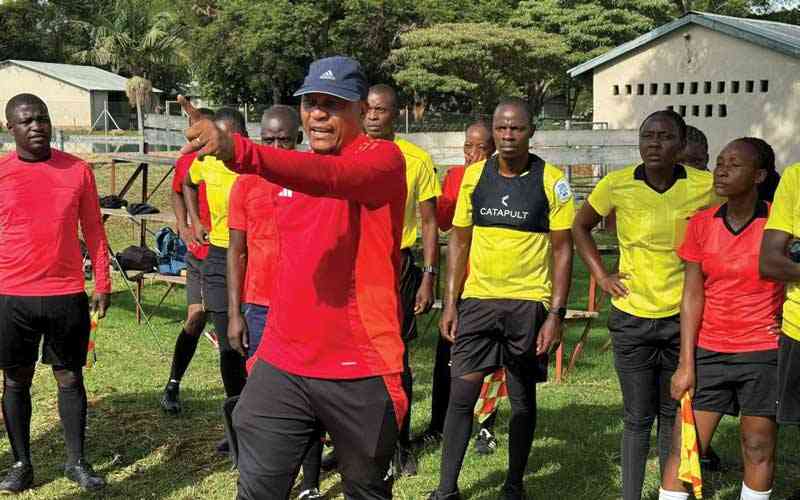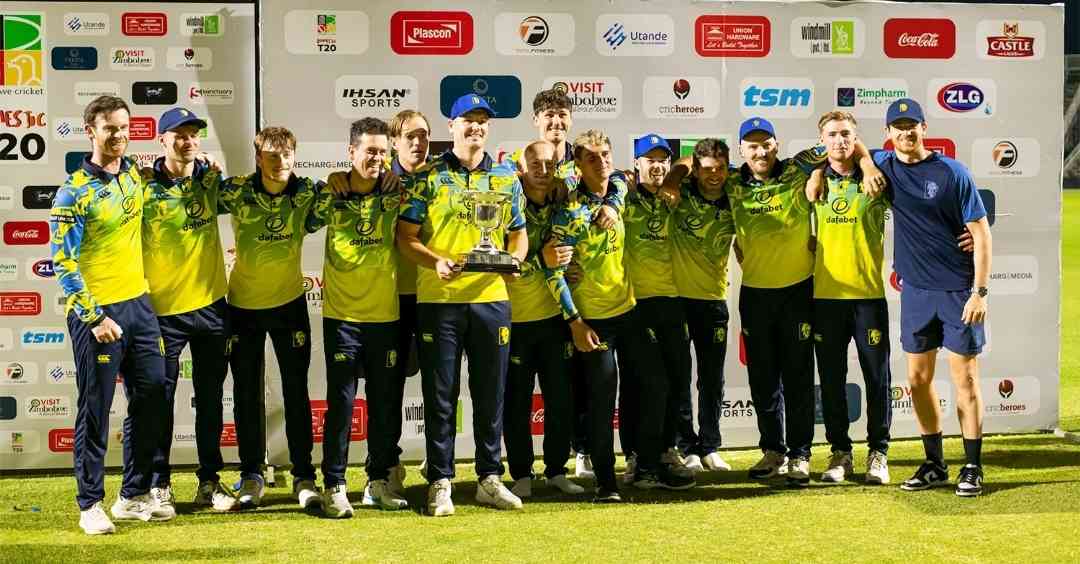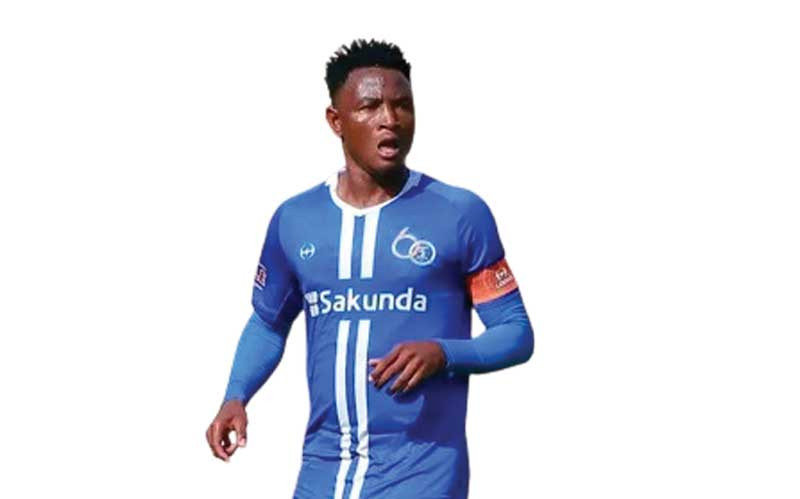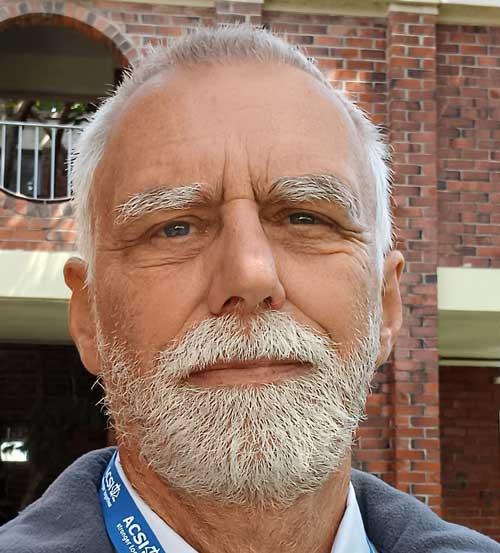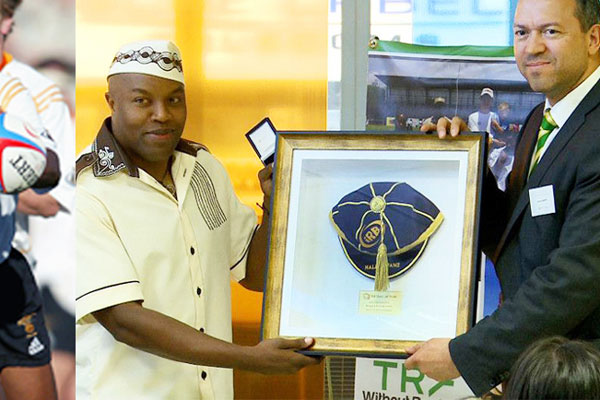
AT the peak of his powers, legendary Zimbabwean rugby icon and World Rugby Hall of Famer, Kennedy Tsimba was once considered one of the best rugby players in the world as he awed South African fans with his amazing talent.
BY DANIEL NHAKANISO RECENTLY IN BLOEMFONTEIN, SOUTH AFRICA

The dazzling flyhalf, known for his mesmerising kicking, vision and skill played the best rugby of his career for the Bloemfontein-based Cheetahs, breaking the union’s record for the most points scored in a season (228) — a feat which earned him the Currie Cup Player of the Year award in 2002.
He still holds the record of being the fastest player to reach 1 000 points in first-class rugby and in 2008, he was again voted as the Currie Cup Player of the Year.
Tsimba was a folk hero in the Afrikaner heartland of Free State, earning himself the moniker King of Bloemfontein, which has stuck with him over the years.
Seven years after bidding farewell to the sport that gave him fame, Tsimba was back in Bloemfontein two weeks ago for the Under-13 Coca Cola Craven Week and the Under-16 Grant Khomo Week.
The two high-profile age group tournaments were hosted by Grey College, which is situated just five minutes away from the Free State Rugby Stadium, a place which Tsimba called home for many years.
And he could not help but feel a little nostalgic due to the familiar surroundings.
- Chamisa under fire over US$120K donation
- Mavhunga puts DeMbare into Chibuku quarterfinals
- Pension funds bet on Cabora Bassa oilfields
- Councils defy govt fire tender directive
Keep Reading
“It’s been an emotional return,” Tsimba told Standardsport in an exclusive interview. “It’s been good to be back home and I must say they’ve welcomed me just like they did when I first came here. When I saw the brown grass that we used to play on, I couldn’t help but reminisce about the good old days.”
“Seeing the youngsters playing just makes me remember my old days when I was at primary school. As you can see, they are not wearing any boots but you can still see them making some sidesteps and showing good flair.”
Tsimba’s unmistakable passion for rugby immediately comes out when he speaks about his current involvement in the game in South Africa, as well as his future coaching aspirations.
Currently employed full-time as the director of rugby at one of South Africa’s most prestigious private schools, St Alban’s, Tsimba is also actively involved in grassroots and club rugby, which he sees as a natural progression to coaching at professional level in the near future.
“Besides working with St Alban’s, I have been working with the SA schools where we select the top 50 players from the Craven Weeks and do camps at the end of the year.
“It’s all part of the talent identification process here in South Africa. besides that, I’m also running a development programme called the Moshate Cup, which is a competition for township clubs within Pretoria.
“We host them at St Alban’s and bring in eight teams from those township clubs where they come to compete and play.”
Tsimba says his transition from playing to coaching has not been seamless but he was ready to bid farewell to his time in the junior ranks and make the big leap to professional rugby.
“It’s been difficult making the transition from being a player to coaching because a lot of the times you still want to show them how to play.
“You’re saying run this way and you want to show them how it’s done but it [coaching] has been excellent because there’s nothing better than teaching young men to do something and say to them, if you do it this way, it will work, and when it comes off, 90% of the time there’s just a fulfilment you get, so it’s been really good and I’ve made sure I take the necessary steps.
Ultimately Tsimba sees himself following in the footsteps of former All Blacks coach Graeme Henry and ex-Springboks mentor Jake White, who used schools rugby in their respective countries as a stepping stone to the highest level of coaching.
“I’ve coached at club level; I’m now coaching at school level so I’m learning all those attributes that you need to be a good coach. If you look at guys like Graeme Henry, Jake White, they were all initially coaching at schools and took the same route as I’m taking.
“Obviously, I also aspire to reach the levels they’ve reached…I’m always being asked when are you going to go back into professional rugby but I always say I’m waiting for the right time to come. I’m still enjoying developing youngsters and giving them a chance to play a brand of rugby that I used to play,” Tsimba said.
The former Sables skipper said Zimbabwe rugby still occupied a special place in his heart and he was willing to assist local players looking to establish themselves south of the Limpopo.
“Yes, I’m available to assist my home nation and I believe my angle on how I’m trying to help the Zimbabwe team is by trying to have some interaction with the boys that are looking to come to South Africa. Here there is proper professionalism, which focuses on athletes so with that, I see myself being the link between players who want to come and play here,” he said.
Tsimba, who hails from a strong rugby playing family that includes his elder brother and fellow World Rugby Hall of Famer Richard “Black Diamond” Tsimba, started playing rugby at the age of 10 at Ruzawi Primary School before moving to Eaglesvale High School in Harare.
Richard, who played for Zimbabwe in two World Cups in 1987 and 1991, was the country’s first black rugby international.
Kennedy proceeded to Prince Edward High School, one of the country’s rugby conveyor belts, before leaving for the United Kingdom.
His first breakthrough in professional rugby came in 1998 when he signed for English side Bath where he stayed for a year and returned briefly to Zimbabwe in 1999.
Tsimba became Zimbabwe’s first black rugby captain when he took over from Brendan Dawson in 1999, going on to earn four caps for the Sables before embarking on a journey down South that was to see him scaling dizzy heights.
“Obviously, I didn’t want to play rugby initially but because Richard was making headlines as the first black Zimbabwe player, the pressure did come on to me with everyone saying let’s see if you can be better than your brother,” Tsimba said about his early introduction to the sport.
“So it became a tug a war until I had to leave Zimbabwe. I couldn’t defeat his legacy there because it was too big. I had to come here to South Africa to make a legacy of my own.
He signed for Free State Cheetahs in 1999 and stayed there until 2005 before moving to Pretoria to join the Blue Bulls.
Between 2008 and 2010, Tsimba returned to his adopted “home”, the Free State where he played in the Currie Cup for Griffons Rugby Club and Super 14 for Cheetahs.
Citizenship complications prevented him from playing for the Springboks despite spirited attempts by South African rugby officials.

